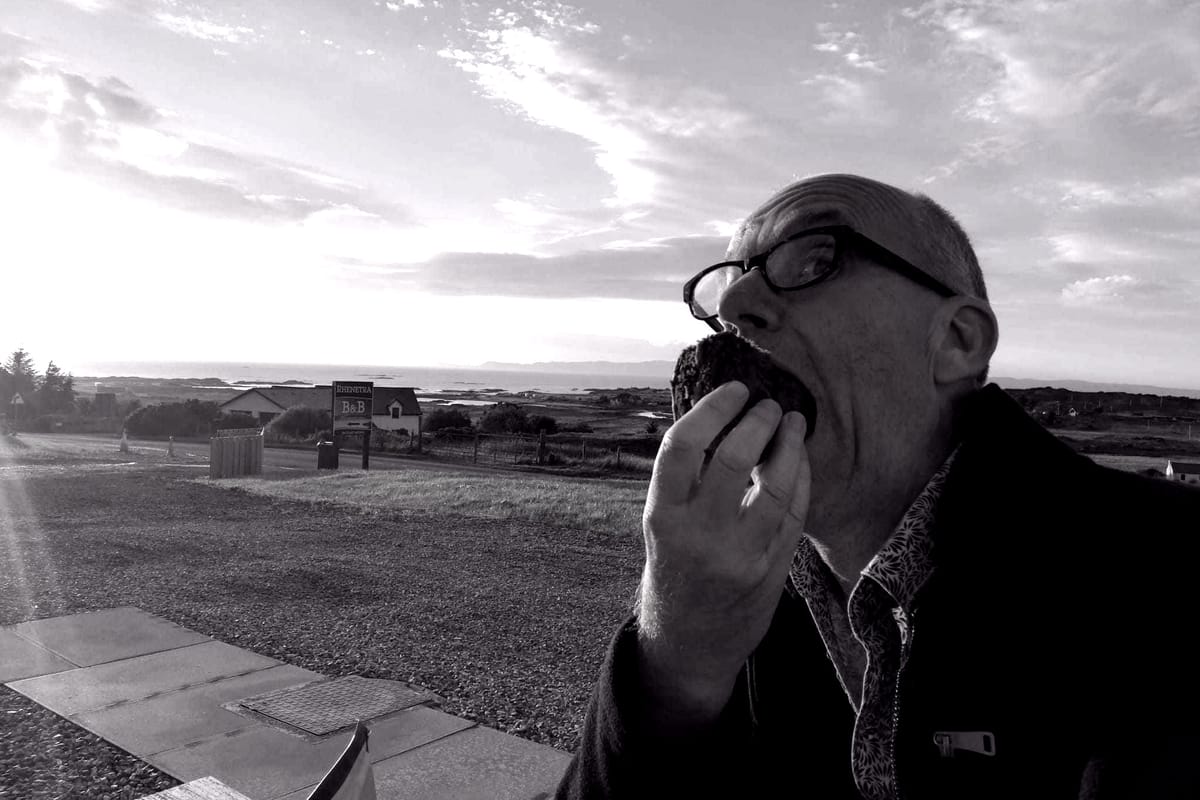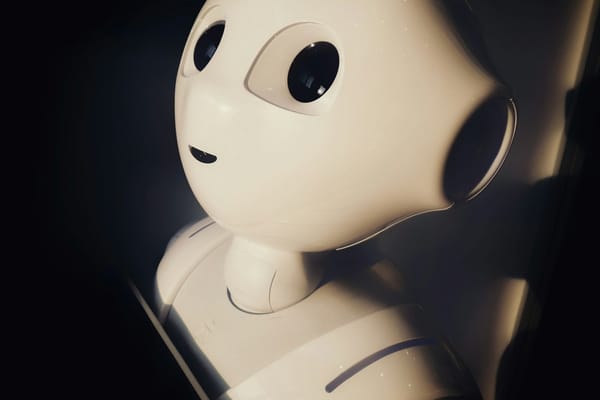"If in doubt, throw a dice with six bizarre options. The dice is your creative WD40."
Author Q&A: we catch up with Andy Hill as we get ready for the release of Harvey's first Post Apoc anthology...

Andy Hill is one our Harvey regulars and is one of my (secret) panel of submissions readers. His short stories are always thought-provoking, provocative and edge delightfully towards the literary side of writing. He also writes poetry.
We catch up with Andy as the first anthology from the Harvey Post Apocalypse/Dystopian basket is due to be released, and have the pleasure of sharing one of our favourite original Harvey stories, Distance, written and published at the height of the Covid-19 lockdowns of 2020.
Q: Andy, do you still write poetry? And where can we find it?
A: Well, after I went ‘Big in Japan’ with ‘I Saw You’, the second album was always going to be difficult! But seriously, I’m finding the creative juices aren’t flowing on poetry at the moment and wondered why for a while. Then it struck me, I was more recently trying to write poetry that reflected current feelings or attitudes. Looking back, some of the stuff previously written revealed something rather than reflected something. So perhaps the moral is stop trying (or stop thinking) and it happens, or maybe try harder. I don’t know. I guess we all stumble around and then a thing occurs. A bit of Zen would be great and it’s a killer Scrabble word.
Q: How do you find the difference between writing poetry and writing short stories?
A: Oooh, there’s a good question. I suppose poetry helps you focus on the poignancy of a word, where short stories are driven more by conveying a plot or twist rapidly. They both have a common thread of the power of brevity. I love that both are like the old school art of writing a letter to a penpal or emigrant relative you last saw when you were six.
Q: Your stories are usually profound. Do you set out to address a moral issue or does it just happen? Where do you get your ideas from and how do you process them into fiction?
A: Why thank you, my stories are usually meant for a laugh but Captain Serious grabs the keyboard evidently. The best ideas come on flights of fancy, wandering around random places, conversations with old ladies in seaside bus shelters… Transferring a concept to a fictionalised place is a bit random. If in doubt, throw a dice with six bizarre options. The dice is your creative WD40.
Q: What are you working on now?
A: I’ve become fascinated by how much Cognitive Dissonance is about. Environmental Campaigners just back from trekking in Indonesia… you get the idea. How do we become so detached between our stated views and our actions? How to get that from a rant into an entertaining story with a twist is the challenge.
Q: What do you enjoy most about the writing process and what do you get from it?
A: The worst part is that blank sheet of paper, so I avoid a blank piece of paper. If in doubt I start off by copying and pasting a few texts and adding in the lyrics of a Donny Osmond song in reverse. I think when you first read something you’ve written, it’s just embarrassing, however looking back after a couple of years, it’s really helpful with understanding yourself.
Q: You have had an interesting career. What do you enjoy doing most in life?
A: Interesting times indeed, usually with a spot of occasional self sabotage to spice things up. I really enjoy just trying new things, driving down a road, catching the X21 bus to Cockfields, just because of the name. Do things, say yes, eat more chips.
Q: If you could time-travel back to the any period in history, when and where in the world would you go?
A: That’s not fair, why does your time travel machine only have reverse gear? That’s easy, I’d go back to Scarborough, 18th August 1976. I had the best ever fried donuts and found a one-armed bandit that worked without putting money in it that day. That or hang around on the rim of a black hole and watch everyone whizzing around at near infinite speed.
Q: Are you working on any short story ideas for future Harveys, and which basket excites you the most?
A: Post apoc always is such a fertile setting for the imagination, you can wind anything around that. It’s just such a crowded space, so there’s that pressure to be extra original.
Q: What advice would you give anyone starting out on their writing and publishing adventure?
A: Nike.
Q: What excites you when you read a fab submission for Harvey? What if anything would make you reject a story? And what advice would you give anyone working on a short story to submit to Harvey?
A: Stories that authors have written for themselves, not to appease an audience. Don’t try to ape your heroes, be your own hero. I’d strongly advise anyone writing to concentrate on having a great thought-provoking ending (then work backwards). Stories that don’t make the cut often just peter out and end vaguely. We really want to say yes and will support you whenever we can to achieve that.

DISTANCE
by Andy Hill
First published in Harvey Duckman Volume 20, June 2020
To me, Seb is just my brother. That he is now some kind of crazy symbol for the future for our crazy Earth still astounds me. His story already seems to be becoming a mythology, yet I know it’s true, I was there. But I run ahead of myself. Perhaps we should go back to where it all began.
2120 was much like any other year that I can remember, except for the arrival of my little brother Seb. Mum had struggled with her pregnancy and the midwifdroid’s algorithm computed she couldn’t have Seb at home. We all knew at the time that transfer to the hospital IsoPods was a big deal. Going outside your touchcluster needs so many approvals and so much preparation. They say a tonne of anti-spread plastic per trip is used up getting in the birthing bubble process. That, like everything doesn’t come free. If you can’t trade your wares for it now you are dishing out trade notes far and wide. Other than for the first day and the last day of your life, you have to stay with your cluster. You have to. Of course, there are exceptions, the Keys as we call them. Largely they live in one giant cluster and are devoted to mainly making the plastics and a few other specialist things we can’t make or grow ourselves. These plastics are important to us as the only way to build the quarantine bridges for intra cluster trade, as well as securing our pods. Our cluster grow salads and market garden, a skill we passed on through generations of perfecting the process against all the odds.
Oh, I didn’t say our name, did I? We are Cluster Rocket Leaf, named after the first lettuce we perfected.




